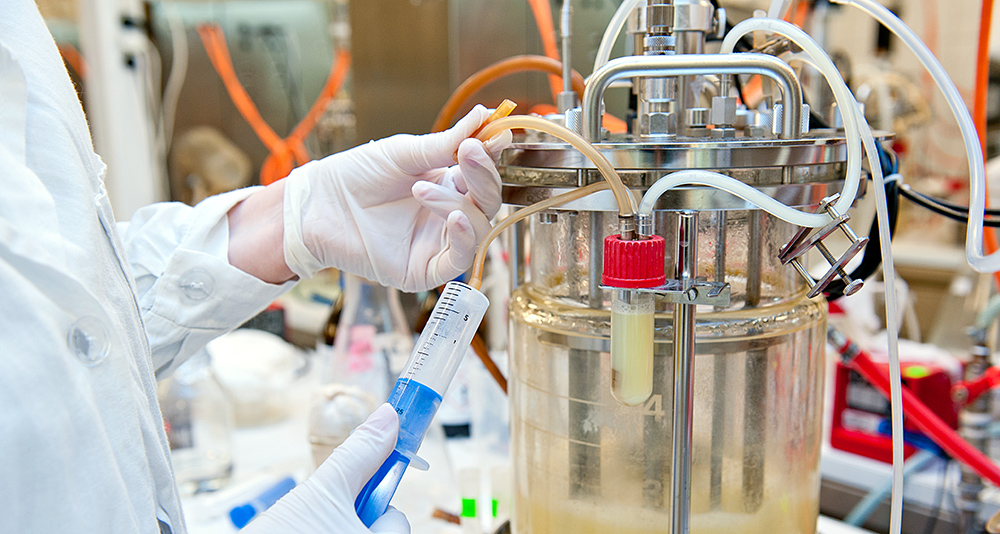Fields of Study

Our department offers Master of Applied Science (MASc), Master of Engineering (MEng) and Doctor of Philosophy (PhD) degrees in Chemical Engineering. These programs emphasize in-depth studies and research in the following three streams.
Three Fields of Study to Choose From
Research in this stream is focused on functional materials, which are organic, inorganic and/or hybrid materials with tunable shapes and sizes. Examples include sensors, printable materials, packaging or building materials, as well as composites that can withstand harsh conditions. In our department, research in this area includes crystal engineering of micro-porous materials and multifunctional nanostructures, as well as micro-fabrication methods for micro-particles, membranes and surfaces for biomedical applications. Further biomedical-related research is ongoing in the engineering of functional orthopaedic and ear, nose and throat tissues, as well as the effects of physical forces on cartilage cell metabolism. Many of our students are doing work to help the environment in areas such as the production of green biofuels, plastics and nano-fibers from renewable and sustainable resources, as well as designing 3D micro-pores and polymer nano-composites for clean energy systems.
Your career options are vast with expertise in functional materials and include roles in areas such as electronics, process engineering, research and development, nanotechnology, sustainable energy, sensors and actuators, medical devices and more.
As a student in this stream, you’ll gain specialized knowledge of the design of systems that convert raw goods into usable goods, such as sustainable energy, pulp and paper products, food, and polymerization systems. Research in this stream engages intensively in two categories: 1) complex fluids and 2) systems engineering and identification, and process synthesis and analysis. In complex fluids, you will perform research in fluid mixing technology, multiphase flow and visualization, reactor hydrodynamics, and non-Newtonian rheology, with the aid of computational fluid dynamics (CFD). In the second category, you will perform research in optimal design and control, non-linear process control, statistical modeling and analysis, and the infrared-drying process of polymer-based materials.
Career opportunities in process systems abound in a variety of industries, including agriculture, oil and gas, mining, pharmaceuticals, software development, and biotech.
With enormous implications for our environment, research in this stream is focused on industrial wastewater treatment, including application of ozone technology and polymer surface modification. Mass transfer in a packed bed and membrane filtration are also studied, as are bioreactors for wastewater treatment and nutrient removal. In addition, advanced oxidation technologies, biological processes, and photochemical and biochemical reaction engineering are a focus of this stream.
Many of our graduates go on to rewarding careers with government agencies, public and private water and wastewater treatment facilities, and research and teaching positions.